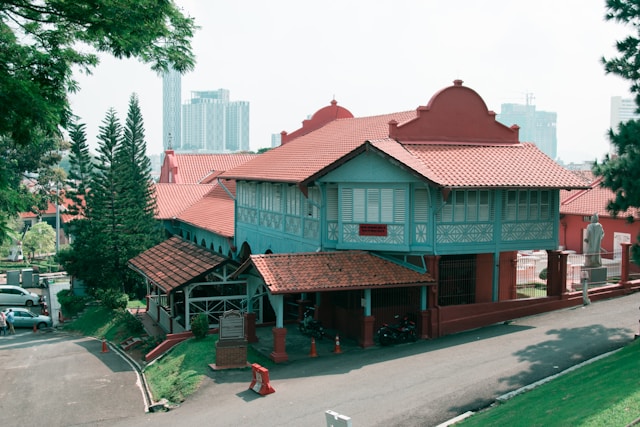Right then, let’s talk travel. There seems to be a peculiar shift afoot, a sort of quiet rebellion against the beige predictability of the modern hotel. It appears a growing number of intrepid souls, folks who yearn for more than just a key card and a bewilderingly complex television remote, are deliberately choosing to kip down in someone else’s actual house. Specifically, they’re flocking towards heritage homestays, seeking something hotels seemingly forgot to stock: genuine, unvarnished authenticity.
So, who are these adventurers shunning the sterile embrace of chain hotels? They are the culture-seeking travellers, individuals tired of experiencing destinations through a curated, often sanitized, lens. They’re looking for cultural immersion, not just observation. And who meets them at the door? Often, it’s families, custodians of properties steeped in local history, opening their homes – homes that might have been passed down through generations, retaining the architectural quirks and decorative touches that speak volumes about the region’s past and present. These aren’t just places to sleep; they are lived-in narratives.
What exactly is happening here? It’s a conscious pivot towards hotel alternatives that offer more than just lodging. Heritage accommodation provides a portal into the local way of life. Imagine learning a generations-old recipe not from a celebrity chef on telly, but from the person whose grandmother perfected it, right there in their kitchen. Picture hearing local legends not from a guidebook, but from someone who grew up with them. This is the ‘what’ – an exchange far richer than mere currency for a room. It’s the antithesis of the homogenous hotel experience where, frankly, you could wake up and momentarily forget if you’re in Mississauga or Mozambique.
This trend isn’t an overnight sensation but has gathered considerable steam in recent years. It coincides neatly with a broader yearning for meaningful travel – journeys that connect rather than merely transport. Travellers increasingly want their adventures to be respectful, sustainable, and, dare we say, real. The timing reflects a dissatisfaction with superficial tourism and a deeper desire to understand the places visited.
And where do these encounters unfold? Frequently, heritage homestays are tucked away in locations bypassed by major hotel developments – perhaps rural villages or less-trodden urban neighbourhoods. This geographical aspect is key. It allows travellers to sidestep the usual tourist throngs and discover hidden gems, offering a quieter, more personal engagement with the destination. It’s about finding the heartbeat of a place, not just its main attractions.
But why the definitive move away from the perceived safety and predictability of hotels? The core motivation seems to be the pursuit of authenticity. Homestays offer a warmth, a cosiness – that feeling of being a temporary local, rather than a transient visitor. There’s also the significant benefit of directly supporting local communities. The money spent goes into the pockets of the homeowners, aiding in the preservation of their cultural heritage and property, rather than vanishing into the coffers of distant corporations. It transforms tourism from a potentially extractive industry into a more symbiotic relationship. It’s about connection, shared stories, and the simple, profound experience of feeling welcomed into someone’s world.
Finding these unique stays has become easier too, thanks to the digital age facilitating connections between hosts and guests globally. This isn’t just about finding a bed; it’s about finding an experience, a memory etched much deeper than any hotel stay could manage. It represents a fundamental shift towards valuing genuine human connection and cultural understanding in our explorations of the world. For the adventurous spirit, it’s simply a better way to travel.
Choosing heritage accommodation is more than a lodging decision; it’s a declaration that travel should be about more than sightseeing. It’s about insight, connection, and bringing back stories, not just souvenirs. This movement towards sustainable, immersive travel isn’t just changing itineraries; it’s reshaping the very soul of tourism, one fascinating, welcoming homestay at a time.
References:
Heritage homestays: How culture-seeking travellers are shaping a new trend

